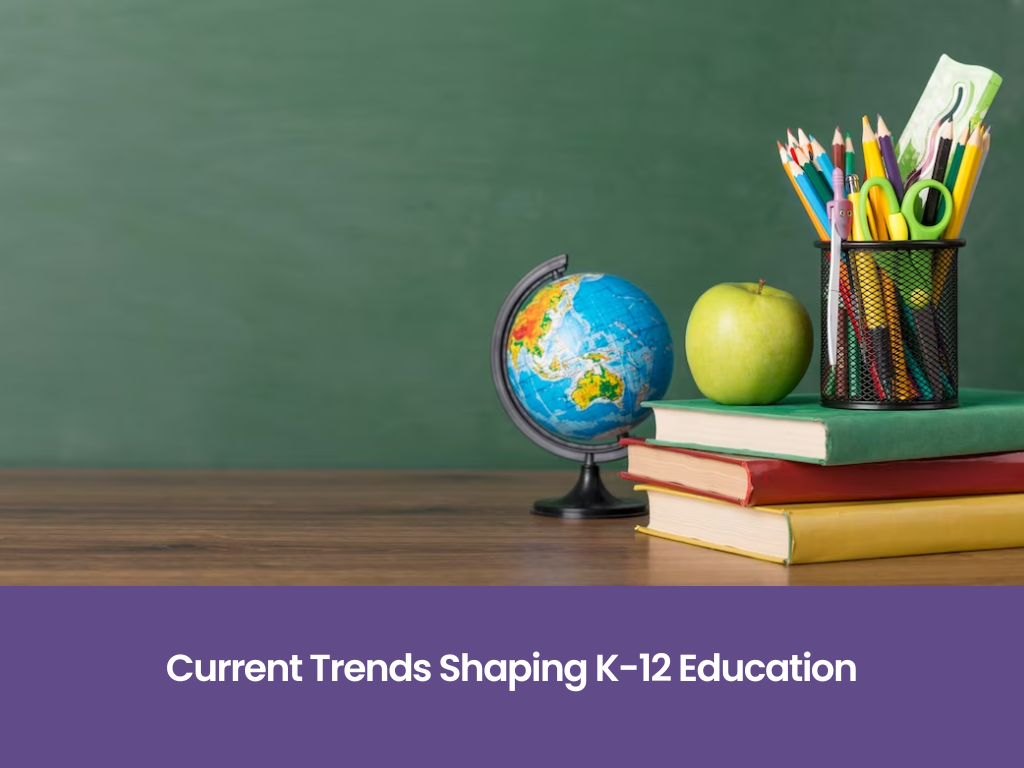Current Trends Shaping K-12 Education
posted on Feb 24, 2024
In the ever-evolving landscape of education, staying abreast of current trends is essential for schools to remain relevant and effectively meet the needs of students.

In the ever-evolving landscape of education, staying abreast of current trends is essential for schools to remain relevant and effectively meet the needs of students. It recognizes the importance of adapting to emerging trends in K-12 education to provide a dynamic and enriching learning experience for its students. This article explores the key trends shaping K-12 education at BGS Vijnatham School, one of the best school in Noida Extension focusing on technology integration, personalized learning, holistic education, and community engagement.
Technology Integration:
Digital Learning Platforms:
The school has embraced digital learning platforms to enhance teaching and learning experiences. These platforms offer interactive resources, multimedia content, and personalized learning pathways that cater to diverse learning styles and preferences. By integrating digital tools and resources into the curriculum, It ensures that students have access to engaging and interactive learning experiences that promote deeper understanding and mastery of concepts.
Blended Learning Models:
Blended learning models, combining traditional classroom instruction with online learning components, are gaining popularity. These models offer flexibility, allowing students to learn at their own pace and access resources beyond the confines of the classroom. Blended learning enables teachers to differentiate instruction, provide targeted support, and track student progress more effectively, leading to improved learning outcomes for all students.
Personalized Learning:
Individualized Instruction:
The School recognizes the importance of catering to individual student needs and preferences through personalized learning approaches. Teachers leverage assessment data, learning analytics, and student interests to tailor instruction and learning experiences to each student's unique strengths, challenges, and interests. By providing individualized instruction, BGS Vijnatham ensures that every student receives the support and resources they need to succeed academically and personally.
Student-Centered Pedagogy:
A shift towards student-centered pedagogy is evident, with a focus on active learning, inquiry-based approaches, and project-based learning experiences. These pedagogical approaches empower students to take ownership of their learning, explore their interests, and develop essential skills such as critical thinking, creativity, and collaboration. By placing students at the center of the learning process and it fosters a culture of curiosity, autonomy, and lifelong learning.
Holistic Education:
Social and Emotional Learning (SEL):
It recognizes the importance of nurturing students' social and emotional well-being alongside academic achievement. SEL programs focus on developing essential life skills such as self-awareness, self-management, social awareness, relationship skills, and responsible decision-making. By integrating SEL into the curriculum and school culture, school promotes a positive school climate, fosters healthy relationships, and equips students with the tools to navigate challenges effectively.
Character Education:
Character education is integral to the holistic development of students. Through values-based education, ethical leadership initiatives, and service-learning opportunities, students develop moral and ethical principles, empathy, and a sense of social responsibility. Character education instills core values such as integrity, respect, and compassion, shaping students into responsible and compassionate global citizens who contribute positively to society.
Community Engagement:
Partnerships and Collaboration:
School actively collaborates with parents, community organizations, and industry partners to enrich the learning experiences of its students. Community partnerships provide opportunities for students to engage in real-world learning experiences, internships, and mentorship programs that bridge the gap between theory and practice. By fostering partnerships with diverse stakeholders, it enriches the educational experience, expands students' horizons, and prepares them for active participation in the community and workforce.
Service-Learning Initiatives:
Service-learning initiatives are integral to the ethos, instilling a sense of civic engagement and social responsibility in students. Through community service projects, volunteer opportunities, and outreach initiatives, students apply classroom knowledge to address real-world issues and make a positive impact in their communities. Service-learning fosters empathy, citizenship, and leadership skills, empowering students to become agents of change and contribute to the common good.
Conclusion:
As it embraces the current trends shaping K-12 education, it remains committed to providing a dynamic and enriching learning environment that prepares students for success in the 21st century. By integrating technology, personalizing learning experiences, promoting holistic education, and fostering community engagement, school equips students with the knowledge, skills, and values necessary to thrive in a rapidly changing world. As students embark on their educational journey, they are empowered to become lifelong learners, critical thinkers, and compassionate leaders who make meaningful contributions to society.